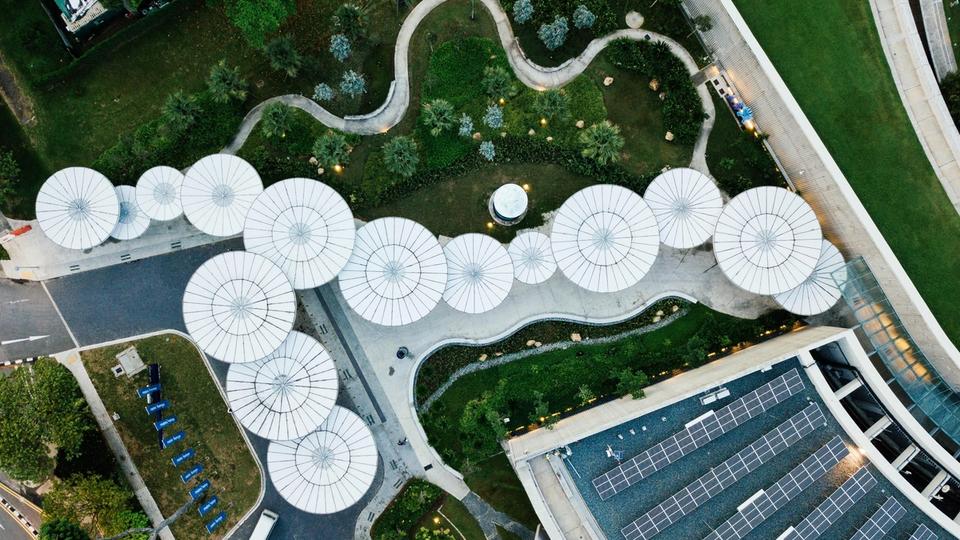Environmental responsibilities of newbuild developers
- Insights
The recent Intergovernmental Panel on Climate Change (IPCC) report by the United Nations (UN) stated «code red» for human driven global heating. Certain climate change effects are now considered irreversible for the foreseeable future. However, there is still time to reduce or limit the impact of human-induced climate change. We know that many buildings have negative impacts on the environment in how they have been built and are being operated, so what can real estate developers do to contribute to a more sustainable environment in the future?

The IPCC report is highlighting the already growing trend among businesses in most industries to purchase more environmentally friendly products and services, and to think more about who they are purchasing products and services from. With continuous new laws and regulations aiming to reduce emissions and environmental footprints among organizations, businesses in most industries are to an increasing extent forced to adapt to this and find more sustainable ways of earning their profits.
Businesses are realizing that actions must be taken
In a recent survey by PWC, it was revealed that a growing belief among players in the real estate industry is that as societies are being rebuilt after the pandemic, they must be rebuilt in a way that minimizes the negative impact on the environment. The survey also reflects a growing awareness among the respondents that the real estate sector must contribute to these goals as well, as climate change is said to be the factor that will have the most severe impact on the industry over the course of the next decades. On top of that, many think that the pandemic itself has renewed the focus on making sustainability a priority.
In the real estate industry, and particularly in the newbuild sector, we are seeing a stronger focus on sustainability and ESG (Environmental, Social, and Governance). ESG is a set of criteria used primarily by investors to evaluate companies, helping them make more socially responsible investment decisions. This is forcing companies across all industries, including in real estate, to commit to ambitious sustainability goals such as certifications and environmental management systems to avoid losing the interest of important investors as well as showing their customers that they are serious about their social responsibility.
According to Wikborg Rein, buildings are responsible for approximately 40% of total energy consumption and are causing approximately 36% of the carbon emissions in the EU countries. It has therefore been decided that from 2021, all new buildings in the EU member states must be “nearly zero-energy buildings” (NZEBs), meaning that a building must have a high energy performance to compensate for the energy used in the building. The NZEB guidelines do not have many fixed thresholds, leaving room for interpretation among the different countries and their varying climates.
What can be done?
This increased focus on sustainability is motivating property developers to create buildings that are as self-sufficient as possible, for example by generating their own power or processing their own wastewater. In Norway, a country that for long has been at the forefront in the use of electric vehicles, it has been decided that as of July 1st, 2021, all new buildings must have infrastructure that supports charging of electric vehicles. Developers must also think about where they purchase their materials and supplies from. They possess considerable economic power by responsibly choosing who to do business with, so when choosing a sustainable supplier it helps increase the focus on sustainability in other industries as well.
How climate challenges are handled by property developers will depend on both local and international laws and regulations, as well as the environmental challenges specific to the countries they are operating in. However, some of the most important steps a property developer can take at this stage are:
- Certifying the company through for example the EU Eco-Management and Audit Scheme (EMAS), or similar instruments to help document and guide the environmental efforts taken within the company.
- Introducing an environmental management system, such as ISO 14001 or a BREEAM-In-Use review throughout the project portfolio and establishing a plan for continuous improvements of the buildings. This step is usually required to undertake a certification such as the EMAS mentioned above.
- Only buying materials that are not hazardous to the environment or people’s health.
- Utilizing the entire development site by for example incorporating solar panels, green lungs, or beekeeping in new buildings.
Climate change will affect how new buildings are developed in the years to come, and how sustainable you are as a property developer will affect how customers and potential investors perceive your brand. We are proud to be collaborating with developers that are serious about their environmental responsibilities and contribute to building more sustainable communities. The newbuild sector will most certainly see more concepts and new innovations in the near future, and we are excited to see where the industry is heading in terms of sustainability.